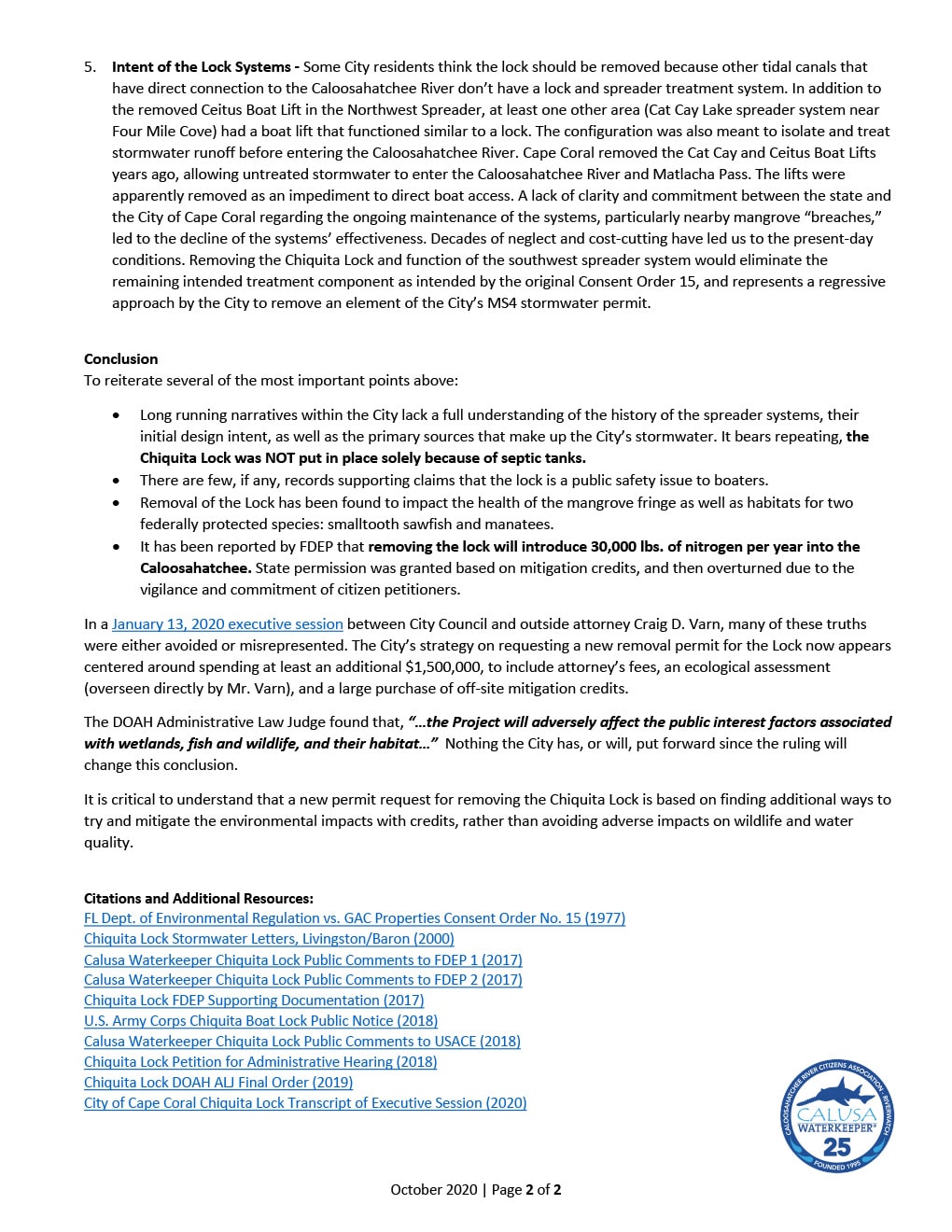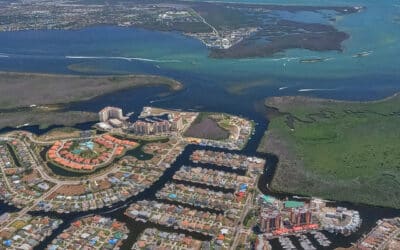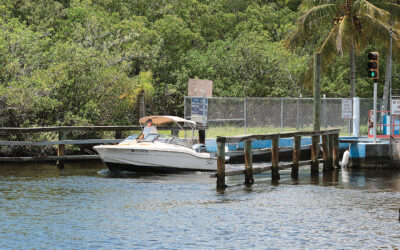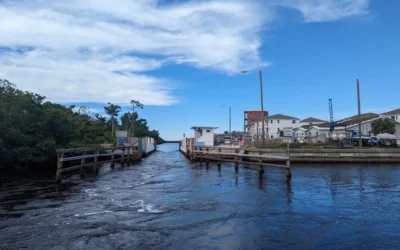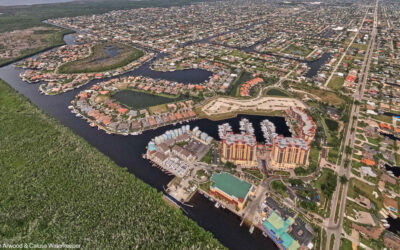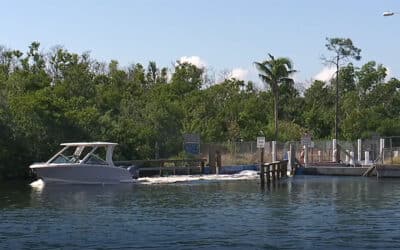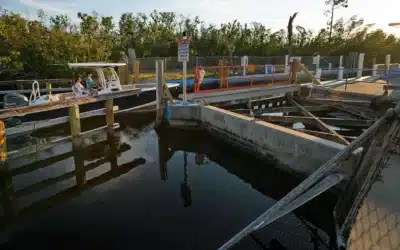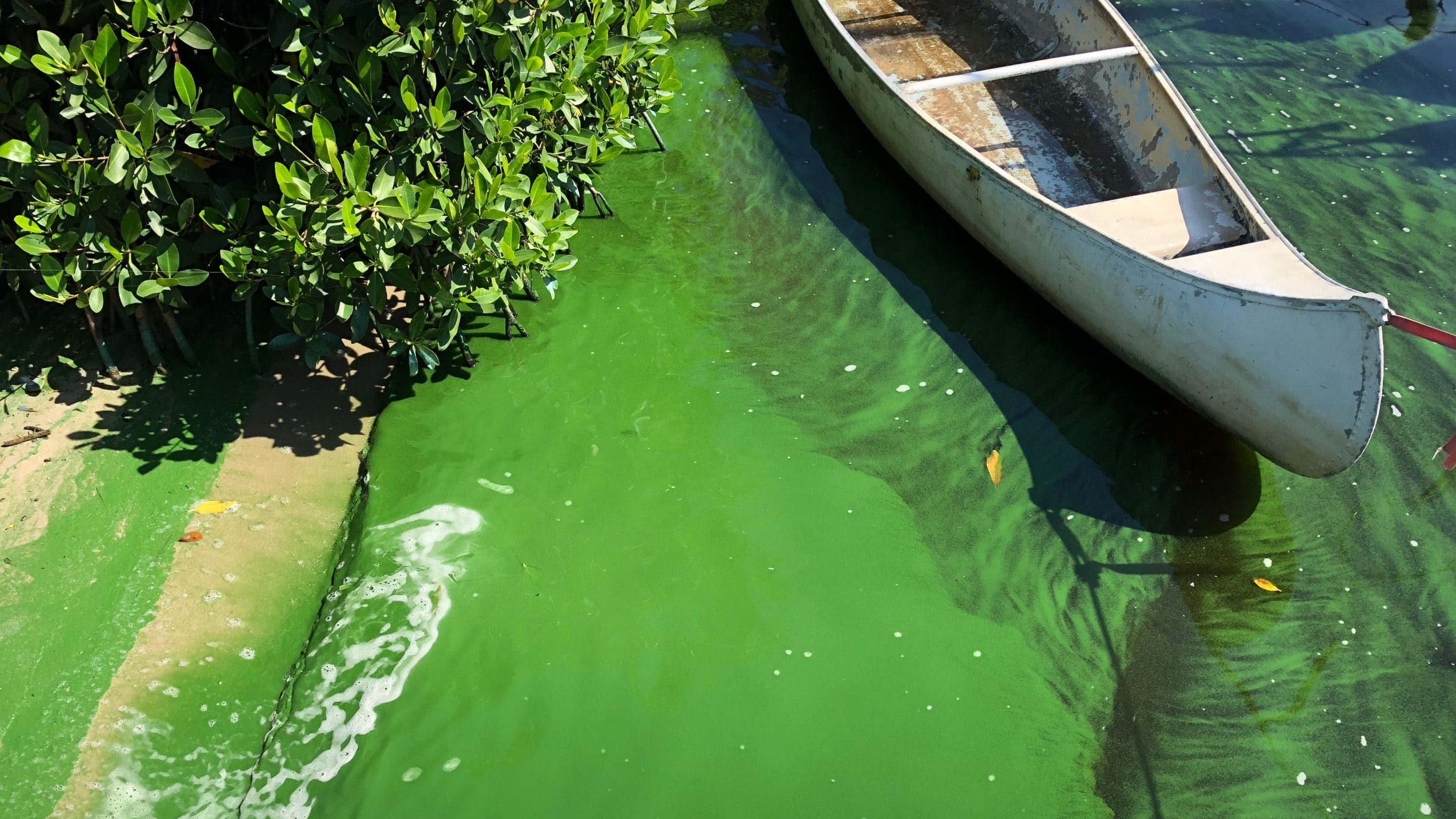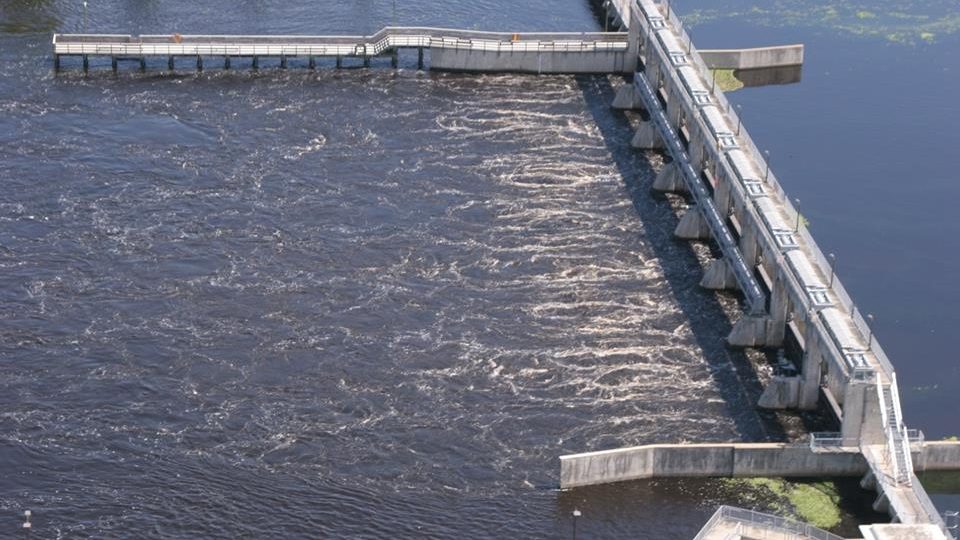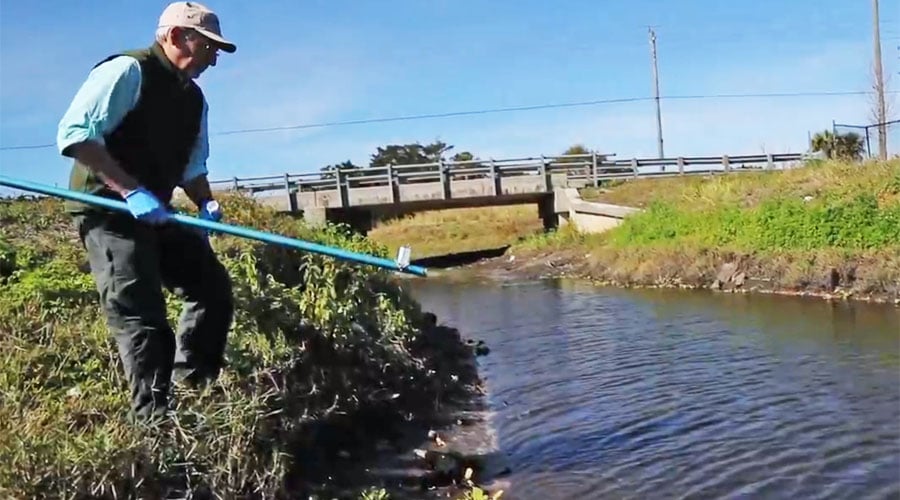Issue:
Cape Coral Spreader Canals
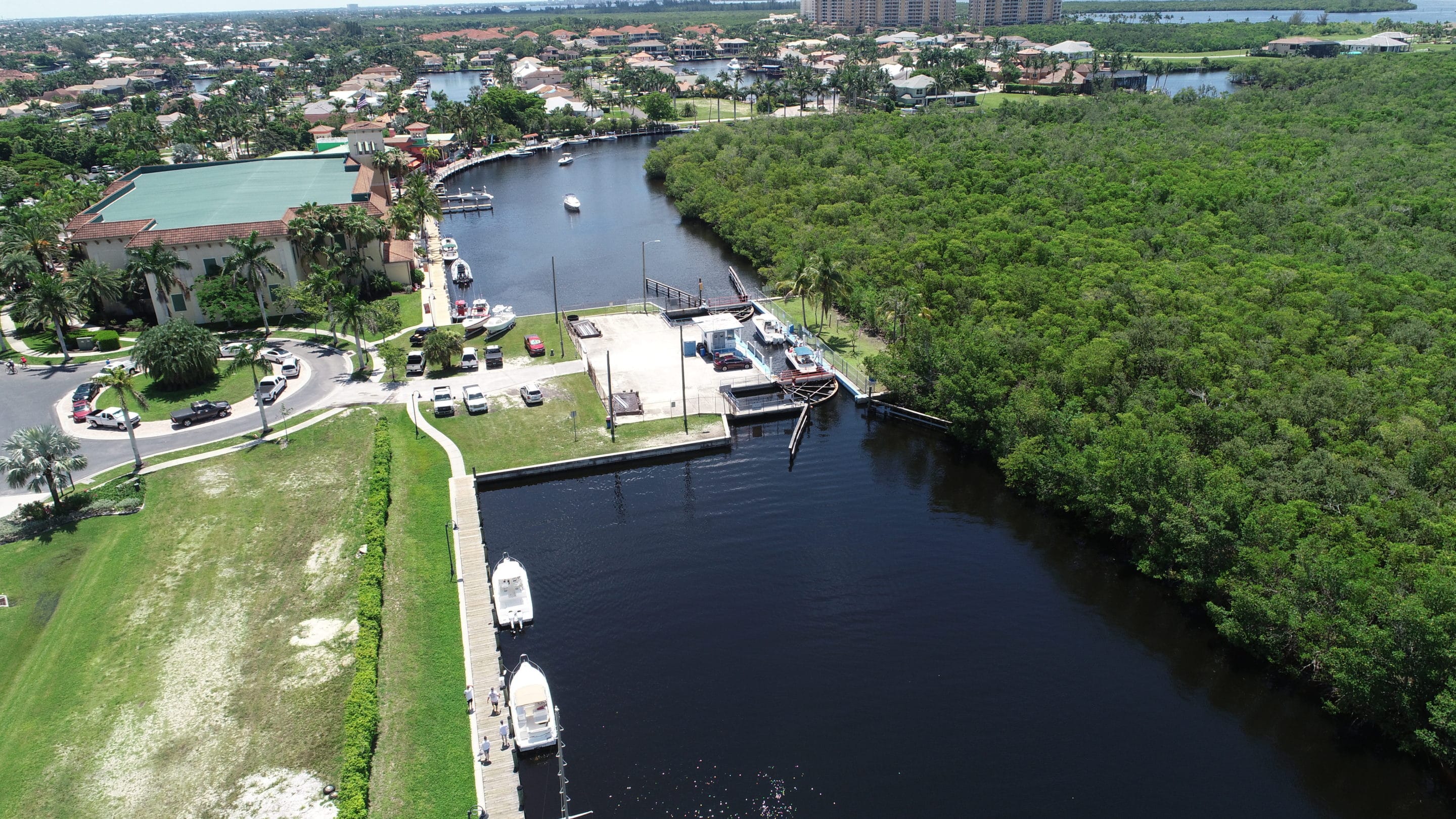
Chiquita Lock Removal
Chiquita Lock is the last of several control structures originally installed in Cape Coral to control storm-water runoff. These systems were designed to store water for natural treatment along the mangrove fringe, mimic the natural sheet flow of water from north to south, and prevent saltwater intrusion into our groundwater.
These control structures were mandated to be installed by a court-ordered consent decree due to Cape Coral’s developers digging many canals without the proper state and federal wetland permitting.
Over the years, the City of Cape Coral and Florida Department of Environmental Protection have allowed mangrove breaches on the western wall to go unmitigated and the lock to fall into disrepair. This is now the argument for the lock serving no purpose. In reality, it is an inconvenience to boaters, and the primary motivation for removal is an expected boost in property values for property owners behind the lock.
A city born from the water may not always doing its best to protect it.
Ceitus Boat Lift & Barrier
A scenario just like Chiquita Lock has already played out in the Northwest Spreader System of Cape Coral. After years of discourse and court battles, the City removed the Ceitus Barrier as a convenience to boaters.
In the years since, Matlacha Pass has been named an impaired water body and dramatic silting has taken place directly downstream of the Northwest Spreader System’s exit directly into the Matlacha Pass Preserve.
Continued development in N. Cape Coral with plans such as the D&D Boat Ramp site and the major Seven Islands District will continue to put greater pressure on these delicately balanced estuary habitats.
Current Status
In 2019, several petitioners challenged the City of Cape Coral’s application and FDEP’s Notice of Intent To Issue an Environmental Resources Permit to permanently remove the Chiquita Lock. After 3 days of hearings, an Administrative Law Judge sided with the citizens and denied the FDEP permit. However, the City of Cape Coral immediately authorized more monies for legal and environmental consultants and it appears they are intent on trying again.
Please stay tuned to Calusa Waterkeeper’s social media or email newsletters for future updates.
Related News Stories
Chiquita Lock & Ceitus Barrier
Judge’s recommended order could lead to removal of Chiquita Lock
An Administrative Law Judge on Monday issued a Recommended Order that will authorize the Florida Department of Environmental Protection to issue an Environmental Resource Permit to the city of Cape Coral for the removal of the lock.
Hearing on Chiquita Lock Concludes
A hearing to determine whether the state should issue a permit allowing the city of Cape Coral to remove the Chiquita Lock concluded Wednesday afternoon. Groups await a written decision by Administrative Law Judge Suzanne Van Wyk, which will be a recommended final order.
Chiquita Lock Hearing Resumed this Week
The hearing was continued after extensive questioning of experts concerning the water pollution generated by Cape Coral ran longer than expected. Petitioners also pointed out that Cape Coral has long held a permit to update the lock with improvements that would benefit wildlife, boaters, and water quality.
Statement of J. Michael Hannon, Petitioners’ Representative in the Chiquita Lock Removal Case
John Cassani, Calusa Waterkeeper Emeritus, in testimony at the trial on the removal of the Chiquita Boat Lock, exposed major failings in the FDEP which allow the City of Cape Coral to continue polluting the waters of Matlacha Pass and the Caloosahatchee without adverse consequences.
The Fight Over the Chiquita Lock Removal is Heading to Trial
The fight over the removal of Chiquita Lock is heading to trial, with Administrative Law Judge Suzanne Van Wyk ruling that the lawsuit can proceed. This comes after multiple nonprofit environmental organizations, including Calusa Waterkeeper was forced to withdraw as petitioners from the legal challenge.
Nonprofits Cite Intimidation from Cape Coral over Chiquita Boat Lock
Several high-profile groups and nonprofits bowed out of a legal challenge to keep Cape Coral’s Chiquita Boat Lock, a nearly 50-year-old manmade barrier, in operation, citing fears of massive attorney’s fees and alleged “intimidation” by the city.
Make a Donation
Get Notified
Priority Issues
Harmful Algal Blooms
Cyanobacteria & Red Tide
Cyanobacteria (blue-green algae) and Karenia brevis (red tide) have been making major impacts on Southwest Florida.
Lake Okeechobee Discharges
Revise System Operating Manual
The Caloosahatchee River often suffers from too much freshwater in the wet season, and not enough freshwater in the dry season.
Cape Coral Spreader Canals
Nutrient & Sediment Loading
The City of Cape Coral is working to remove large storm-water barriers to make recreational boating more convenient.
Bacteria Monitoring
Fecal Bacteria
Calusa Waterkeeper has been at the forefront of monitoring this Fort Myers tributary for fecal bacteria indicators.

























